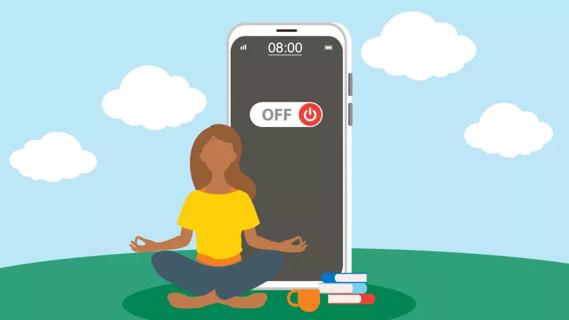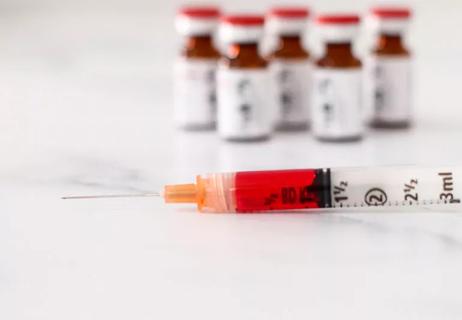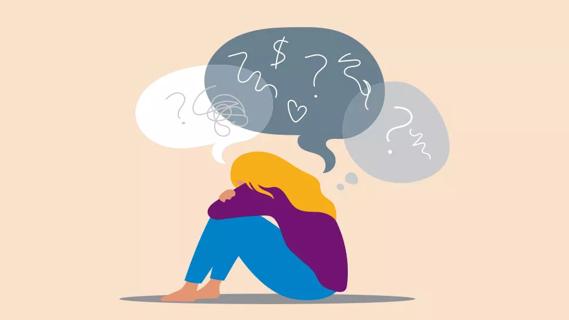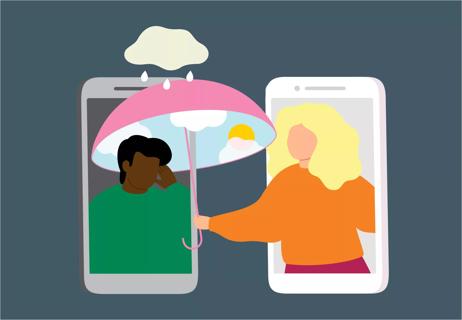Medicines for depression are often misunderstood

Did you know that the World Health Organization considers depression to be the leading cause of disability worldwide?
Cleveland Clinic is a non-profit academic medical center. Advertising on our site helps support our mission. We do not endorse non-Cleveland Clinic products or services. Policy
This might be surprising, but the reality is that something like 1 out of every 15 adults in the U.S. experiences a major depressive episode each year.
It’s this common, and yet there is still a stigma associated with people who have depression – and with mental illness as a whole. Some people avoid seeking treatment for their depression symptoms in the first place for fear of being judged, while others who are diagnosed feel shamed for choosing to take medicine to help manage it.
“I think we’re talking more openly about mental illness than we used to 10 or 15 years ago, but there’s definitely still a stigma attached,” says psychiatrist Doug McLaughlin, DO.
When it comes to depression and the use of antidepressants as a treatment option, some of those negative perceptions likely come from misunderstandings about what antidepressants do and don’t do.
Here, Dr. McLaughlin sheds some light on common questions and misunderstandings about antidepressants.
Clinical depression is neither a choice nor a sign of personal failure.
What exactly happens in the brain to cause depression isn’t known for sure, but there are thought to be multiple factors at play, potentially including:
Lifestyle changes, such as adding exercise, meditation and time in nature to a daily routine, may temporarily boost someone’s mood. Various forms of psychotherapy have also been shown to be effective in treating depression for many people.
But medications are often an important component of treatment because they get at the biological cause of depression. The most commonly prescribed antidepressants — selective serotonin reuptake inhibitors (SSRIs) and serotonin and noradrenaline reuptake inhibitors (SNRIs) – are designed to correct some of the chemical imbalances in the brain that contribute to depression.
Antidepressants aren’t going to make all of anyone’s problems go away. But some people find that medications make it easier to get up every morning, cope with the daily challenges of depression and work through their issues.
They’re also not meant to take the place of behavioral therapy. While people who take medications alone can and do get better, Dr. McLaughlin says, outcomes tend to be best when they’re combined with therapy.
As with any other medication, there’s a flip side: Antidepressants carry the risk of weight gain, headaches, nausea and sexual side effects.
“There is a real risk there, but the likelihood of them happening is not great, and often if side effects do occur, they eventually fade away,” Dr. McLaughlin says.
It might also take a few tries for someone to find a medication that is well tolerated and effective, he adds, as some people do better on certain medications, for no apparent reason.
“The goal shouldn’t be to just expect side effects and risk,” Dr. McLaughlin says. “The goal should be that you take a medicine like this and tolerate it like a vitamin, where it’s doing its job behind the scenes to lift your spirits and even out your mood, and you’re symptom-free and side effect-free.”
It’s important to note that some studies have shown a small but significant increase in suicidal thinking or behavior in people who start taking SSRIs, so follow-up with a doctor is critical in the first few weeks after starting an antidepressant.
People can and do come off of antidepressants successfully when they’re ready and with the guidance of a physician.
“For the most part, the medications that are available for depression are not addictive and not habit-forming,” Dr. McLaughlin says.
For someone who’s been prescribed an antidepressant for their first episode of depression, he says it’s common to try it for at least a year while keeping a close eye on how symptoms change. Patience is also important, as it can take several weeks to take effect.
“Our goal is remission,” Dr. McLaughlin says. “If you have a 50 percent reduction in symptoms but you’re still clinically depressed, that doesn’t really solve the problem. We want to get to the point where symptoms are so minimal that they don’t meet the description for a diagnosis of clinical depression.”
If you have symptoms of depression but are hesitant about treatment options, rest assured that there’s no question or concern too small to bring up with your doctor. Chances are, they’ve heard it before.
“I would tell people that if they have clinical depression and symptoms are evident, that it’s a treatable condition and that they should embrace it,” Dr. McLaughlin concludes. “The sooner you treat it, the less time someone spends in a depressive episode, and the better the outcome.”
Learn more about our editorial process.

Identify your triggers, set ground rules for your break and start practicing mindfulness

If you have low B12 or a true deficiency, these shots can work wonders

Reaching menopause very early raises your risk of certain health conditions

Although different conditons, they can occur together or cause one another

Stay merry and bright by knowing your triggers and journaling throughout your visit

The holidays can be hard on your mental health, but there are ways to cope

More than just ‘deep sadness,’ this complex condition is often a whole-body experience

Learning your warning signs can help push back against an episode of depression

Your metabolism may torch 1,300 to 2,000 calories daily with no activity

A gentle touch in all the right places may help drain your sinuses